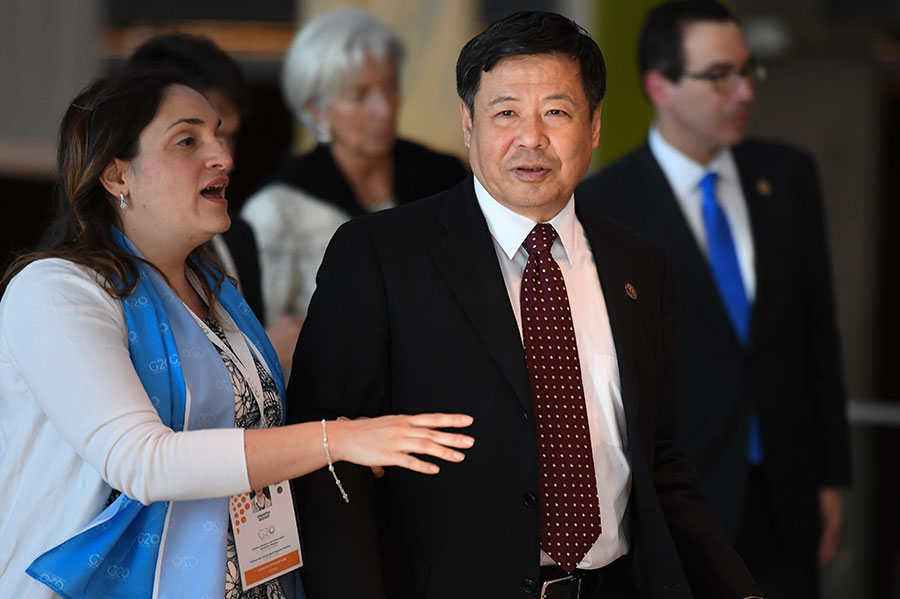Digitalization 'offers new challenges'


Digitalization of the economy, especially in terms of crypto-assets, could bring new challenges including tax evasion and money laundering, warned senior Chinese officials.
The fast development of the digital economy might impact the existing international tax system, and the short-term tax incentives could restrain its long-term development, said Zhu Guangyao, China's vice-minister of finance, at the two-day G20 meeting since Monday, when finance ministers and central bank governors gathered in Buenos Aires, Argentina.
"G20 countries should enhance cooperation on taxing digital economy and seek a consensus-based solution by 2020," suggested Zhu, who also mentioned that digitalization of the economy should raise issues with respect to tax evasion and money laundering.
China's central bank governor Zhou Xiaochuan also warned during the meeting that the crypto-assets could result in illegal trading, money laundering and terrorist financing, as well as impact "monetary policy transmission"-the efficiency of monetary policy tools to influence the macroeconomy.
"China always stresses that the financial sector should better serve the real economy, and now we have doubt about whether crypto-assets could support the real economic development or not," said Zhou, who agreed to strengthen policy coordination under the G20 framework.
Crypto-assets, or so-called crypto-currencies, such as Bitcoin, are digital offerings typically built in a decentralized way without the need for a central bank with character of anonymity during the cash transaction process, possibly leaving space for money laundering and the financing of terrorism.
Besides, the rapid growth of crypto-assets, the extreme volatility in their traded prices, and their ill-defined connections to the traditional financial world could easily create new vulnerabilities, according to experts.
An official communique issued after the First G20 Meeting of Finance Ministers and Central Bank Governors of 2018 highlighted that "crypto-assets lack the key attributes of sovereign currencies".
"At some point they could have financial stability implications," it said.
A separate official statement of the G20 meeting said that the issue of crypto-assets was raised among finance ministers and central bank governors, and they agreed to strengthen regulation and cybersecurity, especially to improve the international payment system, and to prevent potential risks. Participants agreed to develop a menu of policy options for consideration in July.




































